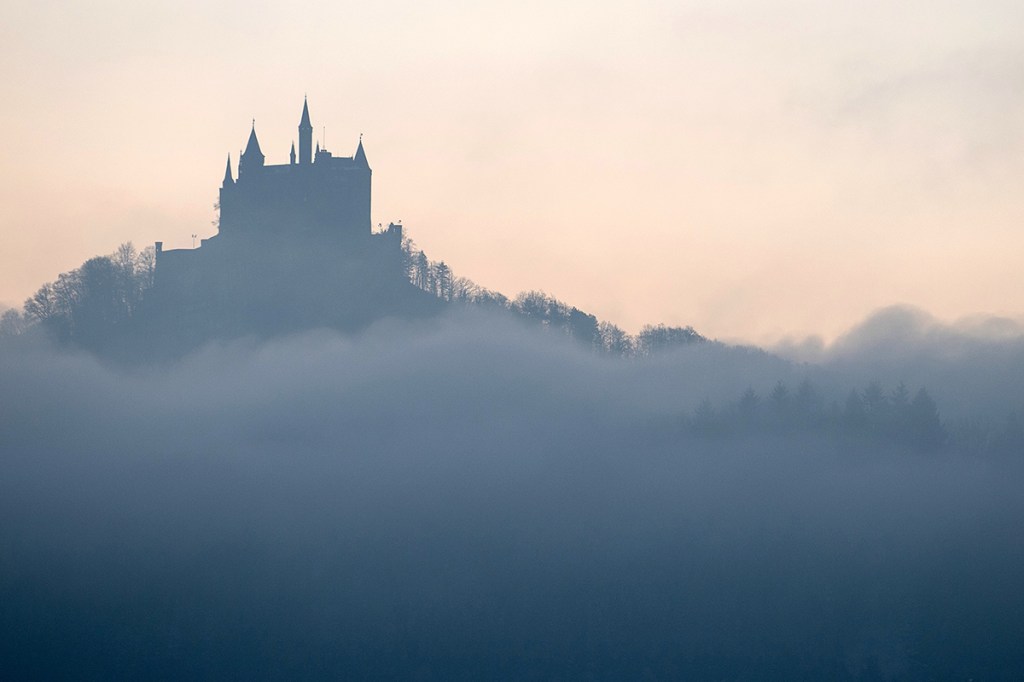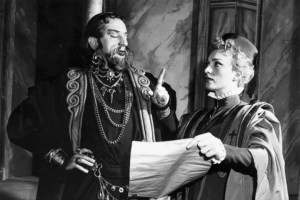Perched on a mountain top overlooking the Swabian Alps, Hohenzollern Castle, with its picturesque towers, seems like something out of a fairytale. It is a relic from a bygone era. When the proud owner is at home, his flag waves defiantly in the wind, but it bears the colors of a kingdom that no longer exists: the black-and-white of Prussia.
Georg Friedrich, Prince of Prussia, is the current head of the House of Hohenzollern. It is strange to look at the smiling businessman in the tailored suits and think of him as a Kaiser. But the 45-year-old father of four would be exactly that had the German monarchy not fallen.
His dynasty can trace its roots back to the 11th century. They became the first, last and only royal family to rule over a unified German nation state, but were forced to relinquish their power after the last German Kaiser, Wilhelm II, was held responsible for the calamity of World War One. Germans have since found it difficult to find a place for the Hohenzollerns in the national narrative.
While Georg Friedrich has always maintained that he has no ambition to carve out a political role for himself, he has been keen to restore his family’s estate, much of which was confiscated in the wake of World War Two. According to the prince, this affects around 10,000 pieces of art as well as usage rights for palaces. In total, the disputed property amounts to hundreds of millions of euros.
Since reunification in 1990, the German state has generally been sympathetic towards those whose property was nationalized or seized after World War Two. While this happened in West Germany too, in the East land redistribution became an official policy. The former ‘elites’ were seen as fair game as they were unanimously regarded as Nazi sympathizers. Property above 100 hectares was confiscated and redistributed, which affected the Hohenzollerns particularly badly as their power base lay in the north east of Germany.
After the fall of the Berlin Wall, Georg Friedrich’s grandfather, Louis Ferdinand, began proceedings to claim the Hohenzollern estate back — but he quickly ran into problems. The first was public outrage. Many German commentators saw the prince’s efforts as sheer greed, especially as many of the objects were on public display and most of the palaces used as museums.
A separate (if related) issue is a legal hurdle designed to prevent families from claiming compensation for property that was confiscated because their ancestors had been been ‘substantially involved in furthering the Nazi system’. The key figure here is Georg Friedrich’s great-grandfather, son of the Kaiser: Crown Prince Wilhelm. He publicly declared his support for the Nazis and Adolf Hitler in the early 1930s. But whether this amounted to ‘substantial’ support — whether this had a direct effect on the takeover — remains the question to be decided.
Crown Prince Wilhelm was a complex character. He could be charming and funny, loved parties and was a successful competitive showjumper. A particular passion of his was soccer long before it became a popular spectator sport. He sponsored his own cup in 1908, the first of its kind and still ongoing as the Länderpokal today. But he took his role as heir to the throne seriously. Wilhelm was a loyal son to his father Kaiser Wilhelm II and commanded troops at the Battle of Verdun, both in the full expectation that he would be Kaiser one day. But he was also the darkest character in the Hohenzollern family — a Nazi sympathizer who pledged his support to Adolf Hitler vociferously both before and after the latter became chancellor of Germany in 1933.
The nature of Wilhelm’s exact role in Hitler’s rise to power is more than family history to his great-grandson Georg Friedrich. It has a bearing on the dynasty’s presence and future, morally and financially. He has therefore commissioned the renowned historian Lothar Machtan, professor of modern history at the University of Bremen, to look into the matter — aided by a five-figure sum and full access to the family archives. Machtan’s findings have now been published in a comprehensive biography, The Crown Prince and the Nazis: The Hohenzollern’s Blind Spot.
In an interview with the Welt newspaper last week, both men, historian and prince, showed themselves to be pleased with the results of the research. Machtan has concluded that there is no denying that ‘there was a phase during which one can speak of a collaboration with the rising Nazis’. But he is also certain that ‘the Hohenzollerns were not involved in the transition of power in the winter of 1932/1933, neither directly nor indirectly’. He characterized Wilhelm as a misguided and ‘erratic’ man who was dispensable in the eyes of the Nazis. The ‘terrible proclamations of loyalty’ he offered Hitler were neither demanded nor particularly useful to the future dictator, Machtan argues.
What the German courts will make of this new analysis remains to be seen. The Prince of Prussia is also still engaged in direct negotiations with cultural organizations in the hope that he might reach compromise solutions outside the courtroom.
But the wounds in German collective memory are still deep, as evidenced by the heated tone of the public debate. The Hohenzollerns have been called a ‘family clan which has haunted central Europe for over 1,000 years with its wars, nepotism and catastrophes’ by one commentator; others have called the claims ‘an insult to the republic’, ‘greedy’ and even an ‘erosion of democracy itself’. Georg Friedrich is clearly trying to rationalize the debate by employing the services of a respected expert in the field but he is fighting an uphill battle.
It is unlikely that press appearances, no matter how sleek and professionally conducted, will allay the collective historical anxiety that still holds sway in many areas of German public life. Even the professional research of a well-respected historian is unlikely to make a difference. Whether Crown Prince Wilhelm helped the Nazis to power or not may be the legal question. But the moral question for many Germans is still whether the Hohenzollerns deserve the return of their riches.
This article was originally published on The Spectator’s UK website.


















